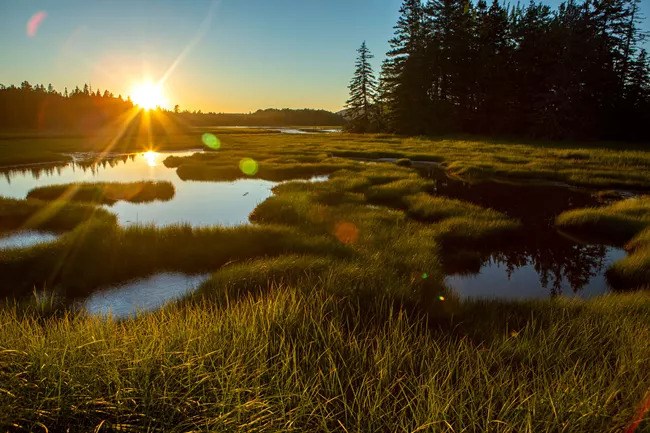Last updated: December 4, 2024
Article
Project Profile: Acadia National Park Salt Marsh Restoration and Restore Salt Marsh to Sustain Cultural Practices

NPS / Ashley L. Conti/Friends of Acadia.
Bipartisan Infrastructure Law
Federal Lands Contracts | FY23-24 $550,000
The National Park Service will integrate traditional Indigenous knowledge and climate-smart techniques to remove invasive plants, restore native plants, and enhance a significant Indigenous cultural landscape in Acadia National Park. The project will result in a restored, climate-resilient salt marsh ecosystem and will support traditional harvesting of sweetgrass.
Why? At 175 acres, Bass Harbor Marsh is the largest salt marsh in the park. It is important habitat for rare birds such as Nelson’s sparrow and least bittern and is a culturally significant landscape for traditional harvesting of sweetgrass by Wabanaki people from the four federally recognized Indian Tribes affiliated with Acadia National Park. The health and cultural value of the marsh is threatened by invasive species and climate change.
What Else? The park will include Tribal partners in the development of interpretive materials to communicate the project results and create learning experiences for Tribal youth corps members and citizen science volunteers. The project will also result in a revegetation protocol to enhance invasive plant management and native plant restoration throughout the Maine Coastal Watershed and in other national parks.
